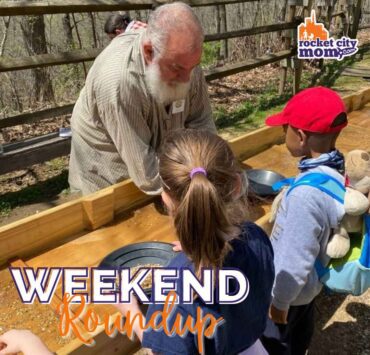Cloth Diapering – It Doesn’t Have to be Rocket Science
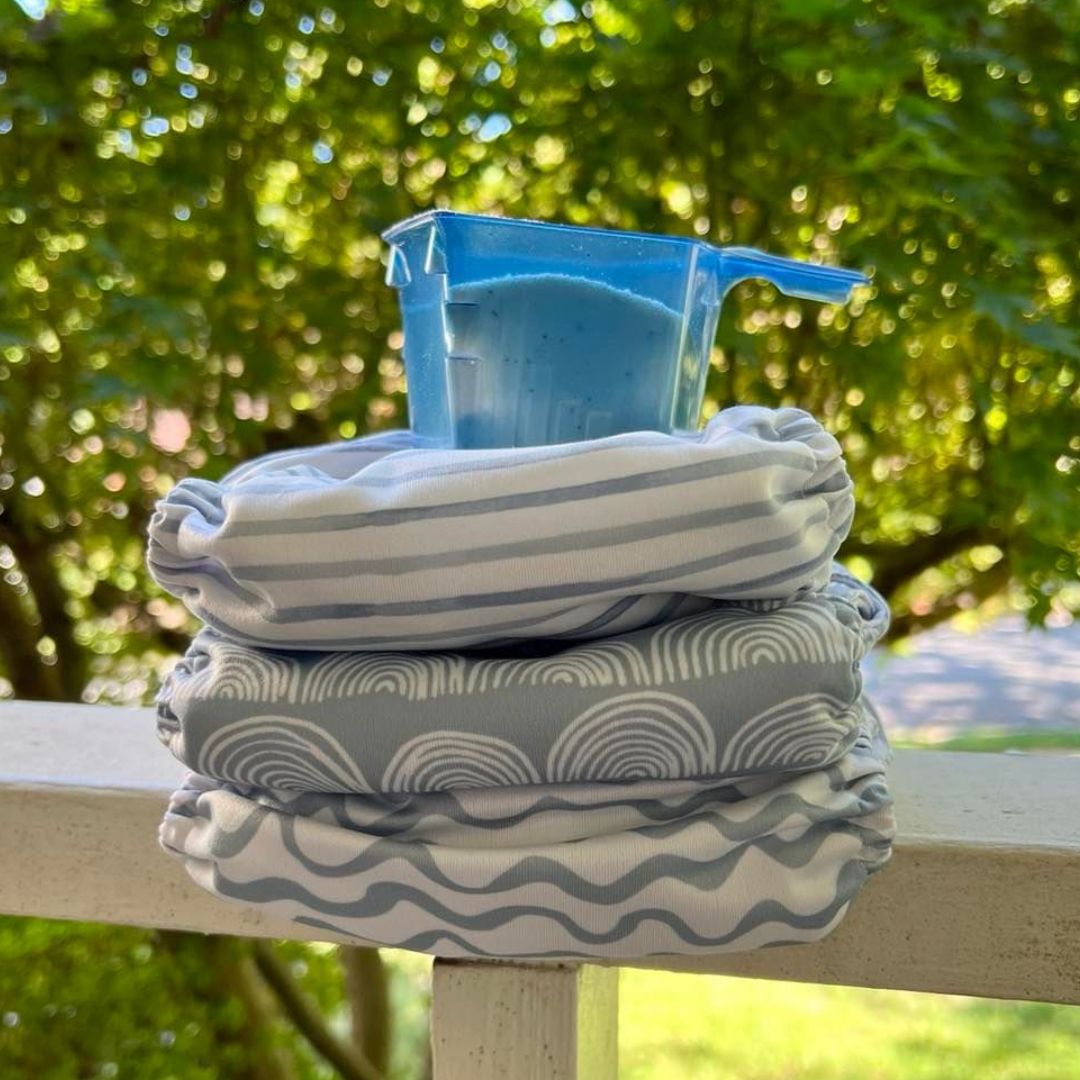
When I mentioned an interest in cloth diapering my son while pregnant I was almost always met with one of two responses: disbelief or a little chuckle followed by an ominous ‘we’ll see about that’. For most people, especially those that cloth diapered their children back in the day, cloth diapering conjures images of giant white diapers secured with safety pins hung on the line to dry. Luckily, cloth diapers have come a long way over the years, and they may just be one of my favorite parenting decisions for our family.
As a more seasoned mom now, I know that most people responded to cloth diapers the way they did because of the perceived gross factor of them and because of the amount of work/time that people think goes into maintaining them. While I understand that cloth diapers are not the perfect fit for every family, here’s some reasons why we not only chose to cloth diaper, but stick with it and love it.
These Aren’t Your Grandma’s Cloth Diapers
As I mentioned, cloth diapers have come a LONG way over the years, and we aren’t using safety pins anymore. While there are many different types and styles of diapers on the market (I personally use pockets for my son), they’re all relatively user-friendly and for the most part even super cute.
My son has almost every color diaper under the rainbow in a variety of patterns and shades. When we’re feeling extra put together, it’s easy and fun to match entire outfits with his diapers for the day.
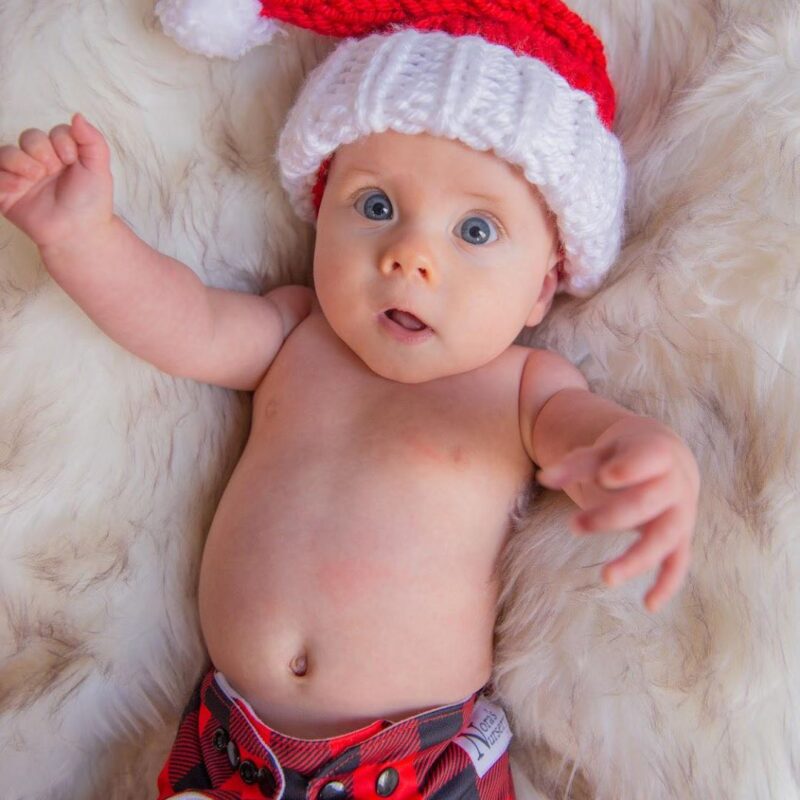
Environmental & Financial Benefits to Cloth Diapering
I love cutting down on waste where I can – using a reusable water bottle, taking notes on a tablet instead of in a notebook, and recycling when possible. So a huge draw to cloth diapers for me were the sheer amount that I would be preventing from entering a landfill where they’d take approximately 500 years to decompose. My son goes through roughly 7 diapers in a 24 hour span – that’s a little over 2,500 diapers that didn’t end up in the landfill this year from us.
Speaking of numbers, another big factor in our decision boiled down to the money that we save by cloth diapering. Although the up front investment can be steep and unrealistic for some families, we’ve spent somewhere around $400 on diapers and supplies that have continued to last my son from early infancy into toddlerhood. We love not having diapers included in our weekly expenses, and never having to wonder if we have diapers or not.
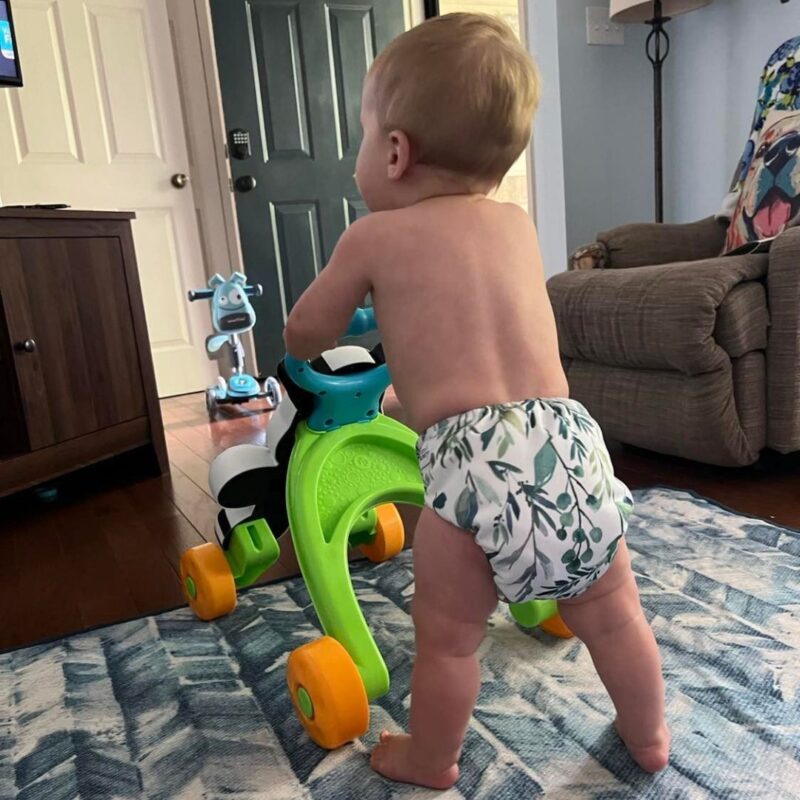
Gentle on Baby
Perhaps one of the biggest deciding factors for our family was how gentle cloth diapers are on baby’s sensitive skin. The first several months we used disposable diapers while I recovered from a difficult delivery and struggled to keep my son free of a diaper rash.
Since making the swap to cloth diapers, we haven’t had to deal with rashes. In addition, the diapers have yet to have a blowout. Even after regular washing, the cloth that sits against my son’s skin is soft and free of any extra chemicals.
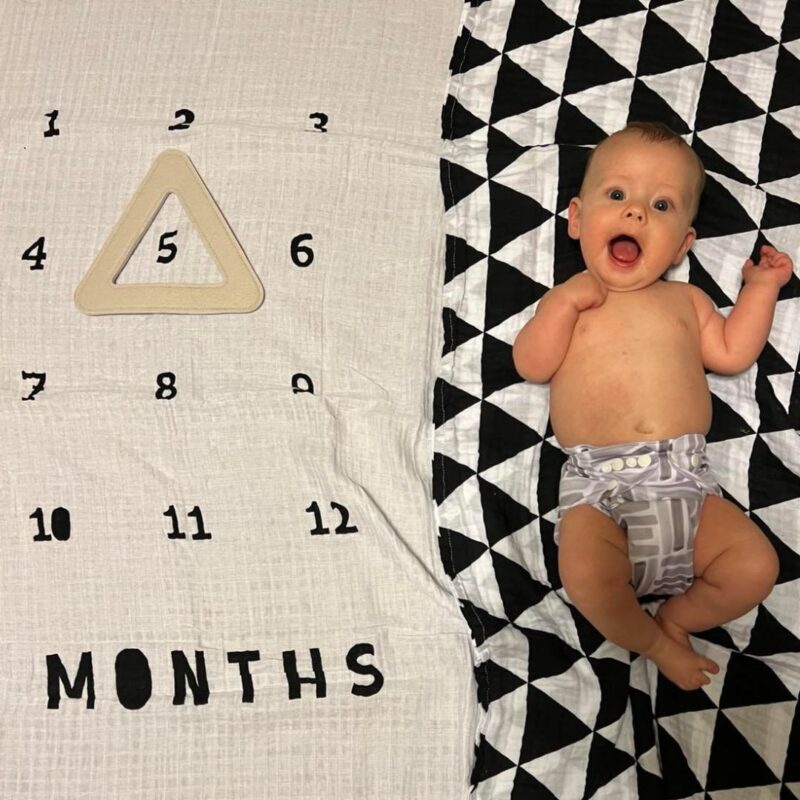
It Doesn’t Have to Be Rocket Science
One of the biggest hurtles for many parents can be the laundry aspect of cloth diapering. I’ll be the first to admit, if you do any research on the process without knowing where to look, it can get overwhelming quickly. There’s plenty of discussion about detergents, the hardness of water, build up, and more. My best advice is to ignore all of that and just get started.
I’ve been cloth diapering my son for a little over a year now and couldn’t tell you whether or not my water is soft or hard. Likewise, I’ve tried several different detergents and they’ve all worked wonders. There’s really just a few basics that need to be covered:
- Solid waste need to be sprayed out or dumped into the toilet before washing.
- Before washing the diapers, run a rinse cycle.
- Run two cycles with soap.
- Don’t dry the diapers with a dryer sheet.
That’s it. That’s the big points to know. If you want to dive in deeper or troubleshoot, Fluff Love & Cloth Diaper Science is a great group for beginners. Cloth diaper manufacturers also usually have helpful and easy tips on their website for their specific brand.

What to do with Number Two
If the ick factor is what is holding you back from cloth diapers, I can honestly say it’s no worse than changing a normal diaper. In fact it greatly reduces smells in your trashcan and there’s nothing more satisfying than folding your clean cloth diapers that smell like fresh laundry.
When it comes to taking care of dirty diapers, you’ll want to dump/spray solids into the toilet before washing. Personally I make use of a sprayer attachment that connects to the toilet for super easy and pain free clean up. You can also simply dip in the toilet or use your peri-bottle from delivery.
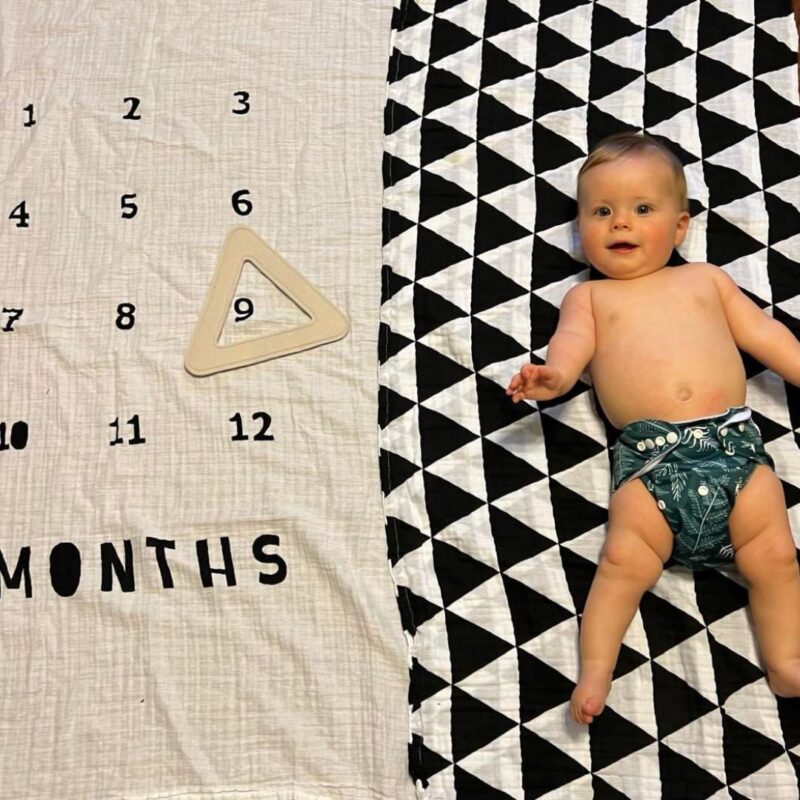
Local Cloth Diapering Resources
Did I convince you to take the plunge? If you’re looking to get started cloth diapering, there’s a few local resources to know about. If you’re looking for preloved cloth diapers, be sure to check out the local consignment sales or join the Cloth Diapering in Hutnsville, AL Facebook group.
Need assistance in starting your cloth diaper journey? Be sure to check out the North Alabama Cloth Diaper Bank!
You Might Also Like…
Lauren Lee is a longtime dog mom transitioning to life as a rookie human mom. She is married to her college sweetheart, Josh, and they welcomed their son, Oliver, to the world in June. Lauren is a Jacksonville State University alumni and has been a published writer since she was sixteen. In her free time, Lauren enjoys reading, writing, knitting and hiking with her two dogs.



